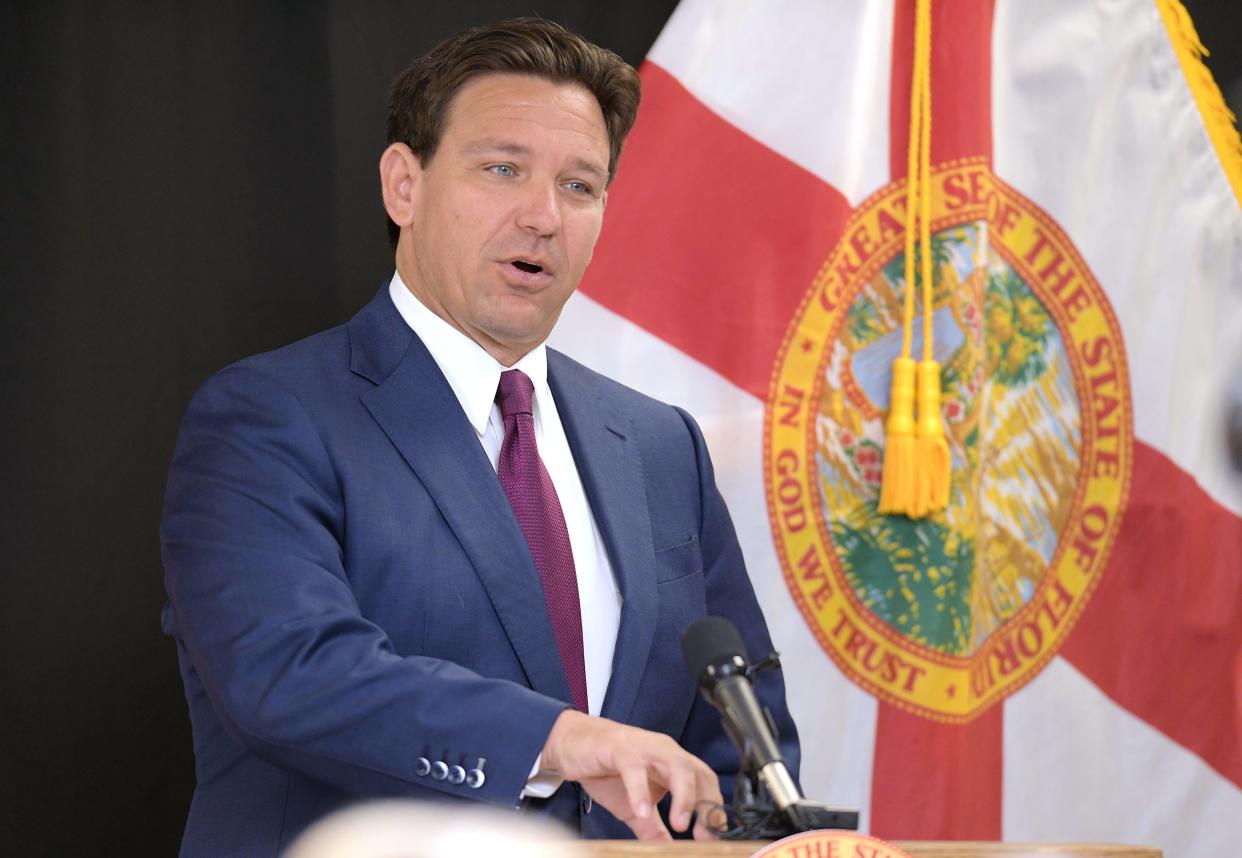DeSantis' selective war on unions is about the future of public education | Commentary

- Oops!Something went wrong.Please try again later.
- Oops!Something went wrong.Please try again later.
Gov. Ron DeSantis on Monday declared open war on the state's largest public employees union, United Teachers of Dade, a hyperbolic, tactical offensive in the administration's broader efforts to transform Florida public education into a decentralized network of charters and private schools and to tilt the curriculum in a decidedly conservative direction.
During a winding news conference in Hialeah that was slated to be about teacher pay raises, DeSantis cast United Teachers of Dade and teachers unions more generally as outdated, corrupt organizations that indoctrinate children and fail to represent the best interests of teachers. Lt. Gov. Jeanette Núñez called union leaders "activists that double as union hacks" who bully their members, and Education Commissioner Manny Diaz Jr. said the unions should "stop focusing their energy ... on woke ideology (and) on protecting pornographic materials."
Florida Republicans have targeted teachers unions with legislation that imposes onerous new requirements for them to remain in existence. In effect, public-sector unions can now face decertification if their dues-paying members fall below 60 percent, while other parts of the law make it harder for unions to retain paying members and actually collect their dues — a two-pronged attack.
Although those union-busting changes were characterized as needed accountability and transparency measures imposed on public unions that have run amok, the law's real-world effects reveal more partisan intentions: police and public-safety unions are exempt from the new legal requirements. Unlike teachers unions, which have been beleaguered for years under hostile governors and legislators, public-safety unions remain some of the most politically powerful employee organizations in the state (the Florida Fraternal Order of Police actually boasts on its website that it's the "largest and most powerful union in both the State of Florida and the nation").
Like other public-sector unions, they also flex their muscle in political campaigns, in collective bargaining with local governments and in debates about public policy. They also happen to frequently back Republicans, including DeSantis. "Thank you is not enough," Florida's FOP president said of DeSantis last year. But it's teachers unions, not police unions, that now live and die by their proportion of dues-paying membership, a number public-safety unions don't even have to report to the state.
Standing behind a lectern that read "Raising Teacher Pay," the message from DeSantis was clear: There are financial inducements to leaving unions and the old (read: "liberal") ways of public education behind. Parents get vouchers to send their children outside the public school system. Charters get a cut of the tax revenue. And compliant teachers can nab bonus checks. And conversely, of course, there are consequences to resistance: just look at the United Teachers of Dade.
DeSantis on Monday touted the state's "Civics Seal of Excellence" online course, a certification program that teachers can take and receive $3,000. The lessons, put together with heavy input from Hillsdale College, a private Christian conservative school in Michigan that shares DeSantis' goal of transforming public education, represent a kind of projection from DeSantis as he accuses unions of indoctrination. They include an introductory course with DeSantis as a featured speaker, a lesson on "Totalitarian Regimes and the American Republic" apparently taught with help from Núñez, the lieutenant governor, and comments from others including William Bennett, a Republican and former U.S. Education Secretary. Any notion this is a non-partisan program is dispensed with in the very first course.
Monday's event itself telegraphed the true tension at work: DeSantis, as he often does, appeared not at a traditional public school but a charter — his preferred future for Florida public education.
Nate Monroe is a Florida columnist for the USA Today Network. Follow him on Twitter @NateMonroeTU. Email him at nmonroe@gannett.com.
This article originally appeared on Florida Times-Union: DeSantis' war on unions targets Florida public education | Nate Monroe

